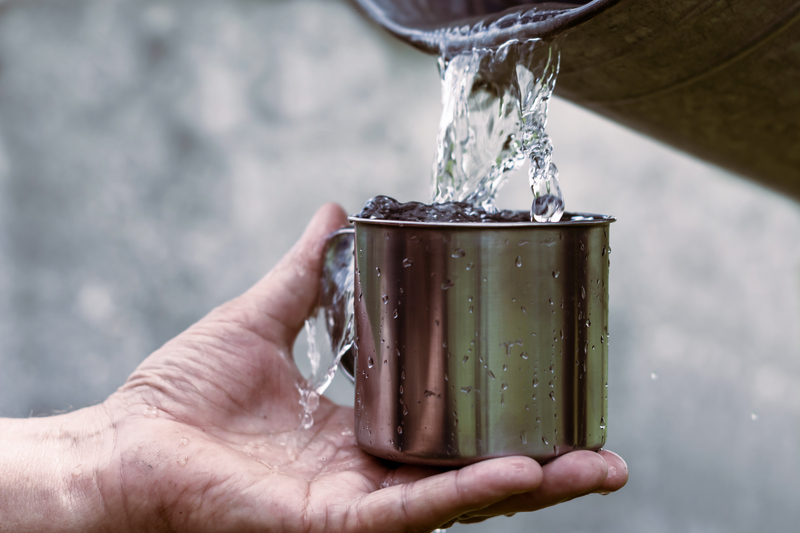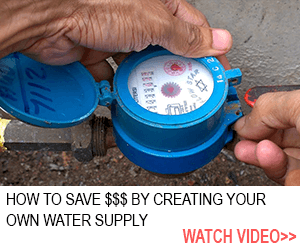Off-grid water systems tend to come with a few headaches. Yes, you have the option of not needing to pay for (or pay as much for, depending on your location) for city water. You also have more control over what the water contains. This last point is important to people who are concerned about added chemicals in their water. However, in order for your off-grid system to be successful, you need to find a few solutions. Seven good ones are listed here.
1) Reclaim Your Rain
Rain barrels are a very popular option. You just need the barrels, a good place to put them (usually around the perimeter of your house) and way to keep major contaminants out of the water. For example, what would happen if an animal were to fall in? While many of the people who collect and use rainwater give it to their livestock and other animals, you could drink it, as long as you filter it and treat it first, just to be on the safe side.
DIY Rain Barrel System (Never Waste Water Again) Read Now >>
2) Install a Back-up Hand Pump
Although many wells these days have electric pumps installed, what happens when the power goes down or that pump breaks? You could be stuck without water for days. This is a very bad thing, especially if you don’t have any stored water that you can use for things like drinking, brushing your teeth, and cooking. This is where a backup hand pump comes into play. These pumps are just like the ones that you remember, although they might have a few modern touches, such as the fact that they’re easier to use. Having one installed on your well might literally save your life.
3) Store Water in Jugs
If you’re worried about water shortages and have access to city water, then feel free to store some. You don’t need fancy (and expensive) pre-filled water bottles when you have empty plastic jugs. Fill those jugs up with water from your tap, add in some purifying tablets (if this is something that worries you), and then find a cool, dry place to store them. In addition to this, you could always fill a bathtub with water in a pinch, as well as any bowls that you have lying around. While neither of those will last for long, they are valid options.
4) Use Solar Power
We already mentioned just how useful a hand pump could be, but a solar-powered pump is another great option. These pumps will definitely keep working when the grid goes down, and they’ll work just like the electrical pumps, as they supply some power to them. This is slightly more expensive than a hand pump, but sometimes you need to have a solid back up option in place.
Solar Industry Secrets with Dan (You Need To Watch This) >>>
5) Dig a Well
Many of the options discussed here are for wells, so it seems necessary to mention that you can always have a well dug unless you’re in the city. If you are worried about not having enough water in case of an emergency, then hire a professional company and have them dig a second well on your property.
6) Choose Wind Power
If you live in a windy area and don’t want to go with solar power, then wind power is a very valid option. These setups cost around the same amount as the solar powered ones, and you’re left with a great back up should something go wrong with the power grid.
7) Fill a Tank with Water
Although this is not the cheapest option, since you’ll have to fill a tank with water, bury it properly, and then find a method of accessing it, it will provide you with water in a pinch.



